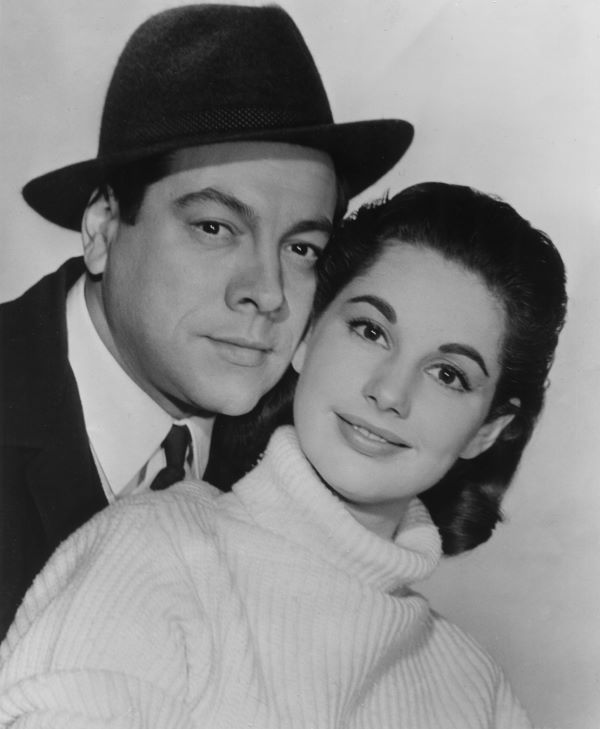Mario Lanza, born Alfredo Arnold Cocozza on January 31, 1921, in Philadelphia, was an American tenor, actor, and one of the most vibrant stars of Hollywood’s golden era. Rising to fame in the late 1940s and early 1950s, his legacy resonates with classical music and cinema fans.
Despite a brief career, his influence is felt in the music industry, and understanding his financial legacy offers insights into the economics of stardom in a bygone era.
Early Career and Rise to Fame
Mario Lanza’s journey to stardom began with a combination of remarkable talent and charisma. He studied at the Curtis Institute of Music and quickly became a rising star, captivating audiences with a stunning tenor voice.
His major breakthrough came with the film “The Great Caruso” (1951), where he portrayed the legendary opera singer Enrico Caruso. This film was a commercial success and cemented its status as a major Hollywood figure.
During the 1950s, Lanza starred in several musicals, including “That Midnight Kiss” (1949) and “The Toast of New Orleans” (1950), establishing a reputation as one of the highest-grossing stars of the time.
His remarkable vocal range and artistic performances led to immense popularity, and his albums saw considerable commercial success.
Source: https://www.imdb.com/
Financial Success
His film roles and music sales significantly bolstered Lanza’s financial status during his lifetime. At the height of the career, estimates suggest that the net worth was around $1 million, a substantial amount in that era. Adjusted for inflation, this figure would represent several million in today’s currency.
Recordings and Sales
Mario Lanza was one of the first classical singers to cross the pop music charts. With a series of successful albums and singles, recordings sold millions. His combination of classical training and popular appeal brought classical music to a broader audience.
Classics like “Be My Love” and “The Loveliest Night of the Year” became hits, significantly contributing to financial earnings and establishing a solid fan base.
Hollywood Success
Lanza’s venture into Hollywood granted fame and considerable financial rewards. His films were among the highest-grossing projects of their time, and he was known to command considerable fees for his performances.
Combining box office success and record sales created a comprehensive financial portfolio many contemporary artists still aspire to achieve.
Posthumous Wealth
Mario Lanza’s legacy extends well beyond his untimely death at the age of 38 in 1959. The music and films continue to generate income, contributing to what would hypothetically be a significant net worth in 2024.
Royalties and Licensing
Even decades after his passing, Lanza’s music generated revenue through ongoing royalties from album sales, streaming services, and licensing agreements with film and television. These income streams provide a lasting financial benefit, ensuring that the memory and artistry remain financially viable and relevant.
The Market for Memorabilia
As a cultural icon, memorabilia associated with Lanza—such as signed items, vintage records, and film artifacts—have become valuable collector’s items. Various auctions have seen these items fetch impressive prices, contributing to the estate’s value.
Estate Management and Legacy
Managing estate is crucial for maintaining and growing the financial legacy. Proper handling of rights, royalties, and memorabilia ensures that contributions to music and film are preserved for future generations.
The Mario Lanza Institute was founded to honor the artist’s memory, providing scholarships to young singers. This institution not only helps budding talent but also keeps its legacy vibrant in the realms of music and performance.
Conclusion
Mario Lanza’s legacy as an artist continues to thrive, with a hypothetical net worth in 2024 reflective of enduring popularity and historical significance in music and film.
The combination of recordings, memorabilia, and ongoing royalties ensures that the name will remain significant in the annals of entertainment history.
As a pioneer who bridged the gap between classical music and mainstream entertainment, financial and cultural impact endures, inspiring generations of musicians and singers.

Welcome to the world of Chef Gary! Meet Chef Gary, a culinary maestro whose journey from Indonesia to the United States has been nothing short of extraordinary. Immigrating in the early 2000s, Chef Gary began his culinary career as a Sushi Chef at renowned establishments such as Japonais Restaurant in Chicago, followed by stints at Benihana and Ginza in Indiana.
With a passion for perfection and a dedication to his craft, Chef Gary’s career blossomed as he made his mark in the Sunshine State, serving as the Head Sushi Chef at Modern Asian restaurants in Palm Beach. However, his two-year sojourn in New Delhi, India, shaped his culinary prowess, propelling him to the prestigious role of Executive Chef at Nehru Place – Benihana.

